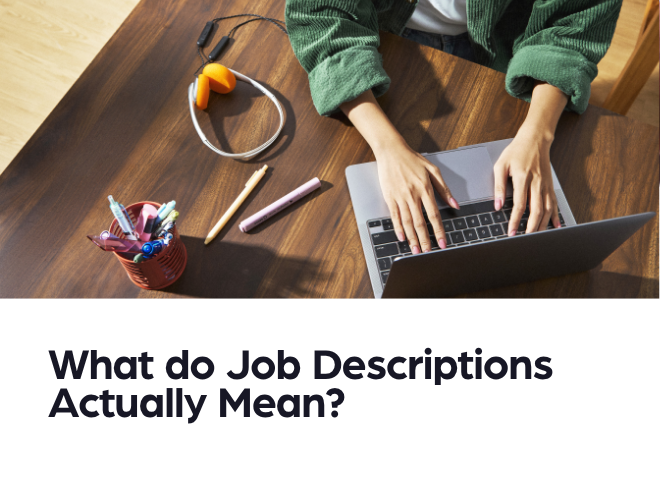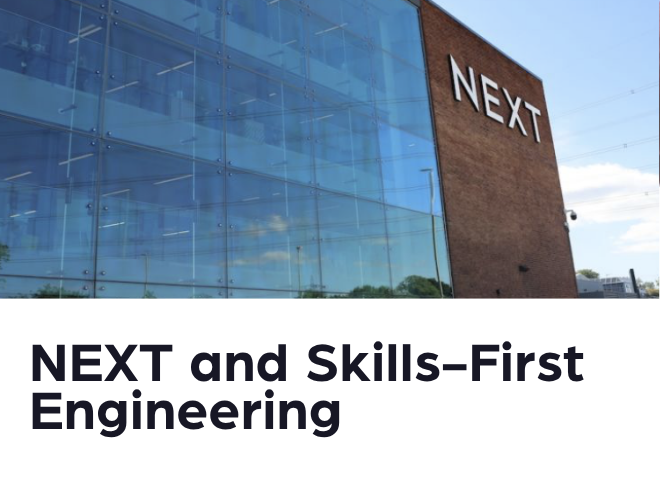Let’s not sugar-coat it, job hunting these days feels like trying to win a raffle where the prize is maybe an email back. If you’ve stepped out of the armed forces and into the wild world of civilian job applications, you’ve probably noticed something odd: You're no longer just competing against other people, you’re competing against algorithms.
So how do you beat the bots without becoming one yourself? Let’s talk AI, and not the sci-fi, end-of-days kind, but the practical, “how do I make this job search less painful’ kind.
The Civilian Job Search
Here’s the brutal truth: most people are wasting a ton of time fine-tuning CVs that get binned by automated filters, doom-scrolling job boards, and prepping for interviews they’re unlikely to get because no one sees them. So unlikely in fact, that only 2% of applicants get invited to an interview after applying online.
Meanwhile, the people getting hired? They’re the ones who have had a proper conversation with someone, were referred, or knew how to translate their military experience into something HR can understand.
[RESOURCE]
AI Isn’t the Enemy - It’s the Tool
If you’re picturing AI as some flashy gimmick, think again. Used right, AI is your admin officer. It’s the turning your logistics background into language that a hiring manager can get their head around, and the one breaking down job descriptions that read like someone swallowed a thesaurus.
It’s not magic, but it is efficient. And frankly, in a world where 250 people are applying for the same job, that counts.
But Let’s Get This Straight: AI Can’t Be You
- It won’t build relationships.
- It won’t understand the subtleties of a team dynamic.
- It won’t know that you got things done in the field with half the gear and no sleep.
That bit’s yours. You still need to do the human part: the conversations, the connections, the industry opinions and insights. AI can give you the time and tools to do that better, faster, but it can’t do the legwork of actually being you.
Avoiding the Robot Voice
Now, before you let AI write your entire LinkedIn profile and start sounding like a second-rate management consultant, remember this: people still hire people, so keep your voice.
We use something that's kind of like building a human (bread) AI (filling) sandwich:
- Start with your own story, opinion and insight. Write it out.
- Let AI polish the grammar and structure
- Then end by tweaking the tone so it’s still you. If you wouldn't say it out loud, change it to a phrasing that you would.
Why This Matters More for the Military Community
The armed forces community faces a unique challenge in the job market. Your experience is rich, but it’s rarely written in civvy-speak, plus your roles were complex, but the titles don’t always reflect it. Your impact? Massive. But your LinkedIn profile? Probably underwhelming.
That’s where tools like Redeployable come in. We’re not just throwing AI at you and hoping for the best. We’ve trained our tools specifically to help armed forces leavers make sense of the civilian world, and vice versa. Think of it like this: we’re your bridge between two languages. Between “Military Occupational Skills” and “Project Manager: Strategic Delivery, Logistics Division”.
Questions You’ve Probably Got
- "Is using AI cheating?" No. If your mate helped you with your CV, would that be cheating? AI’s the same. You’re still thinking, you’re just not doing the formatting from scratch.
- "Won’t recruiters spot it a mile off?" Only if you let AI write like a bot. That’s why we edit; it’s your job to make sure it doesn’t sound like someone wrote it from inside a WeWork.
- "Can I use it to figure out salary expectations?" Absolutely, and you should, because if you think you’ll get what you deserve just by “waiting to see what they offer”, you’ll be sorely disappointed.
Here’s What We Recommend
Use AI to:
- Translate your armed forces roles into clear, commercial language
- Speed up writing tasks (CVs, cover letters, LinkedIn summaries)
- Analyse job descriptions so you know what companies want
- Draft outreach messages that don’t make you cringe
Don’t use AI to:
- Apply to hundreds of roles in one click (spray and pray never works)
- Write anything you wouldn’t be able to explain in an interview
- Replace your actual voice
Final Word
We’re not saying AI is the answer to all your career prayers. But it is a tool that, if used properly, can save you hours and help you stand out in a very crowded field. Use it to buy back your time. Use it to sound more like yourself, not less. Use it to get ahead, not just keep up.
At Redeployable, we leverage AI to make career resettlement simple and tailored to you. Our AI-powered tools help to match you with careers based on more than your rank or role, analyse your skills to highlight civilian job matches you may not have considered and provide step-by-step guidance so your transition isn’t a guessing game.
[CALLOUT]






.avif)


